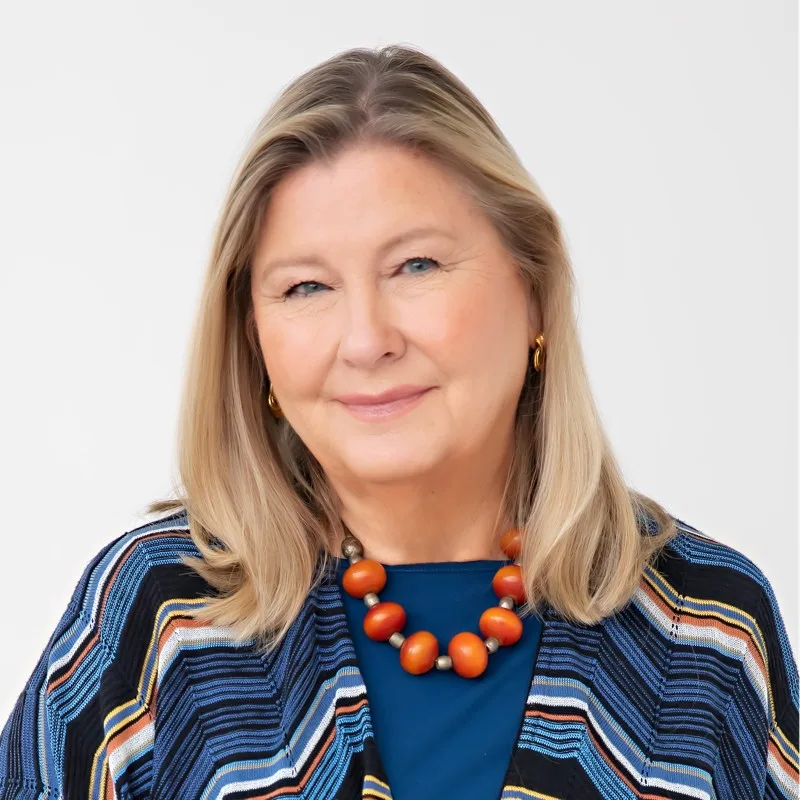My friend and I were reflecting over coffee. She had run a successful business, and I knew she had been generous in supporting both her church and other charities. As she considered retirement, she asked me, in light of my international travel and board experience, to give her my best ideas for changing the world. “If you could invest in anything that would be world changing, what would it be?”
I knew my friend’s heart. She was not asking to make a name for herself or build a monument. She wanted to help the ones Jesus called “the least of these” in Matthew 25:40 (“Whatever you did for the one of the least of these brothers and sisters of mine, you did for me,” NIV).
I had just returned from Kenya, where I had seen clean water transform the health of a village and provide sanitation for a school. I had seen a small clinic offering lifesaving interventions to babies. Agricultural training was helping farmers produce more crops. I had observed faith leaders’ training sessions that were helping change long-held beliefs about gender roles. It had been an amazing trip, and I had seen many interventions that were helping Kenyans overcome challenges and take advantage of opportunities. There were many right answers to her question. But I surprised myself by saying what I had begun to understand during this and other times in the developing world.
“Girls,” I said. “I would invest in girls.” She looked at me, perplexed, and I realized it was a confusing answer. But as I witnessed all the good things that had been done, I had also recognized how many times girls had stood out to me. They were the ones articulating what sanitation had meant to them and why it now gave them the opportunity to go to school. They were the ones who had come back to their village to serve as health workers. They were the ones who—given a chance—seemed to not only succeed, but also to give back to their communities.
So I started again. “There are many great organizations in the world investing in important work: clean water, access to health care, improving education, offering microloans. But in every case, it seems to me that girls are the ones who not only benefit the most from this work, but time and time again, I see them giving back. They are the ones who so often come back to their homes after receiving an education and training.”
My friend and I talked for a few more minutes and then went back to our lives. But I realized that I had just stated something that was becoming a conviction to me. Girls held the key to changing the world. This belief had grown in part from seeing how often girls were disadvantaged in the world.
I had seen little girls around the world lose their childhoods because of poverty, disease, war, displacement, and lack of protections that most of us consider fundamental. Children the world over suffer, but girls suffer even more. We often talk about gender inequality in terms of how it affects women, but little girls face double discrimination in many parts of the world as female children. Surely, these were the ones Jesus meant when he spoke of “the least of these.”
As the mother of two boys, I used to wonder why international development experts emphasized specifically helping girls. But then I began to see that from the time of their birth, in almost every way, girls suffer more than boys. They are more vulnerable, more subject to violence, less likely to receive an education, more likely to be married off at an early age, more often give birth long before their bodies are mature.
“It’s important that we empower girls,” said Rotary International’s president, Shekhar Mehta, “as we all find that more often than not, the girl is disadvantaged. We will serve all children, but our laser focus will be specially on the girl.”1 Mehta’s speech, in June 2021, signaled a shift of emphasis for the international service organization.
Here’s something I had seen clearly: Strong girls make the world stronger. When we give them opportunities, they soar—and they take those around them along. Changing the circumstances for girls is one of the best ways to change the world.
“Investing in girls is one of the smartest things we can do to promote a healthier, more prosperous world. More importantly, it’s the right thing to do. Every girl has the right to be in charge of her future and her fate, and we have the collective obligation to protect her rights and promote her wellbeing,” according to the UN Foundation.2
The World Bank sees educating girls as one of the best ways to lift countries out of poverty. It seems amazing that this sophisticated institution analyzing economic trends has concluded that simply educating girls can be one of the most powerful and world-changing investments. A recent World Bank study estimates that the “limited educational opportunities for girls, and barriers to completing 12 years of education, cost countries between US $15 trillion and $30 trillion in lost lifetime productivity and earnings.” All these factors combined can help lift households, communities, and countries out of poverty.3
When the Nike Foundation began to look for the best ways to solve the global poverty issue, they discovered that girls were the key. Talking about girls who reach adolescence, the foundation president, Maria Eitel, said, “We realized to solve poverty, we’d have to get to her before she arrived at that intersection; we had to figure out how to get her on the first path. And if we could do that, it wouldn’t just be an investment in her, but an investment in everyone around her.”4 Because of those findings, the foundation launched The Girl Effect campaign.5 “The one thing that never changes is girls’ potential,” said Eitel. “Wherever you are, whatever the context, girls prove that they have the potential to rebuild their families, communities, and countries.”6
Girls are the leverage point for the world’s future. Simply put, interventions and opportunities offered to girls help create long-term solutions and avoid long-term problems. Because my granddaughter has been vaccinated, she won’t be debilitated by polio, diphtheria, measles, or other diseases that could derail her life and drain her family financially. Already in preschool, she will happily continue her schooling as long as she wants and use her education to contribute to society. Because laws protect her and her family loves her, she will enjoy her childhood and have a better chance of becoming a well-adjusted adult. If she chooses, she will marry and have children of her own. The investments made in Evie’s childhood offer proven rewards in the future for her, her family, and the society in which she will contribute. And such is the case for other girls in the world. Contributing to health, education, clean water, safety, legal protections, and other measures for girls isn’t just right, it’s smart. What we invest in girls today will reap rewards for the entire world in the future.
1. Shekhar Mehta, “Leave No Girl Behind,” speech, Rotary International virtual convention, June 2021, https://www.rotary.org/en/leave-no-girl-behind.
2. Jenni Lee, “5 Reasons Why Empowering Girls Matters,” Girls and Women (blog), United Nations Foundation, October 7, 2015, https://unfoundation.org/blog/post/5-reasons-why-empowering-girls-matters/.
3. “Girls’ Education,” World Bank, last updated February 10, 2022, https://www.worldbank.org/en/topic/girlseducation.
4. Maria Eitel, “The Nike Foundation on Unleashing the ‘Girl Effect,’” interview by Rahim Kanani, HuffPost, April 20, 2011, https://www.huffpost.com/entry/nike-foundation-girl-effect_b_850551.
5. The Girl Effect is now an independent nonprofit organization. To learn more, see https://www.girleffect.org/.
6. Eitel, “Nike Foundation.”
Adapted from Strong Girls, Strong World: A Practical Guide to Helping Them Soar—and Creating a Better Future for Us All by Dale Hanson Bourke. Copyright © 2023. Used by permission of Tyndale House Publishers, a division of Tyndale House Ministries. All rights reserved.
















0 Comments